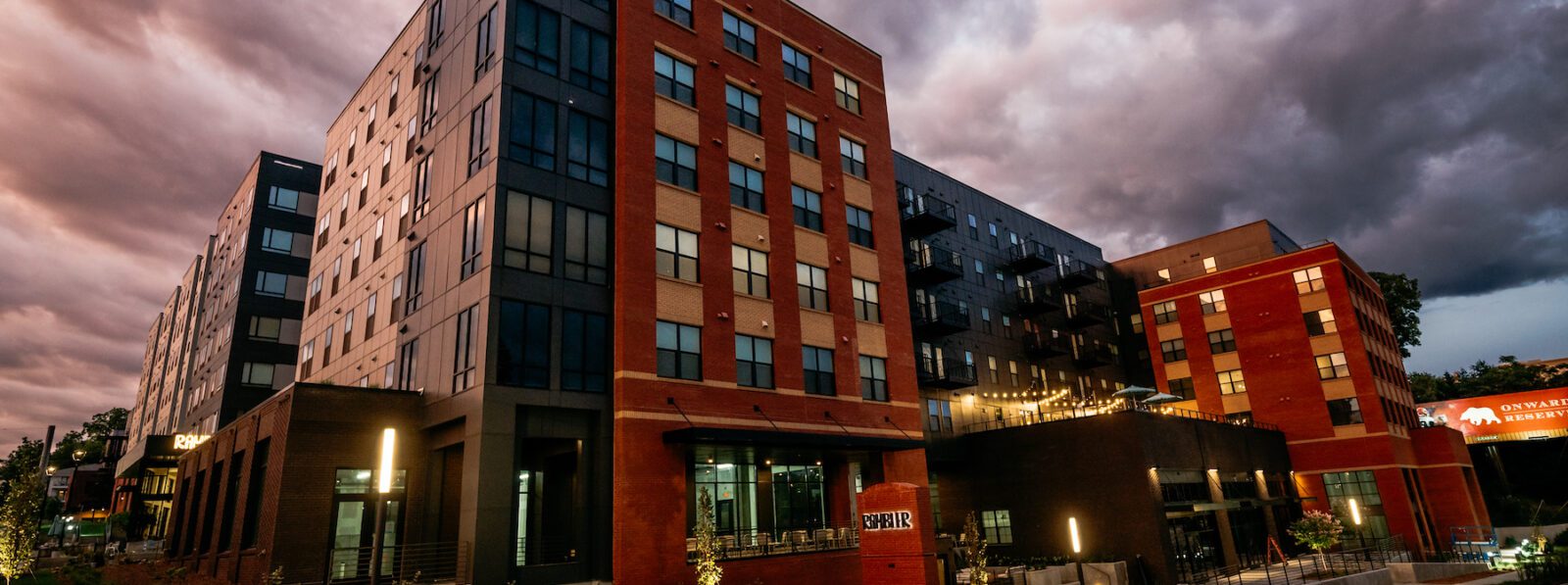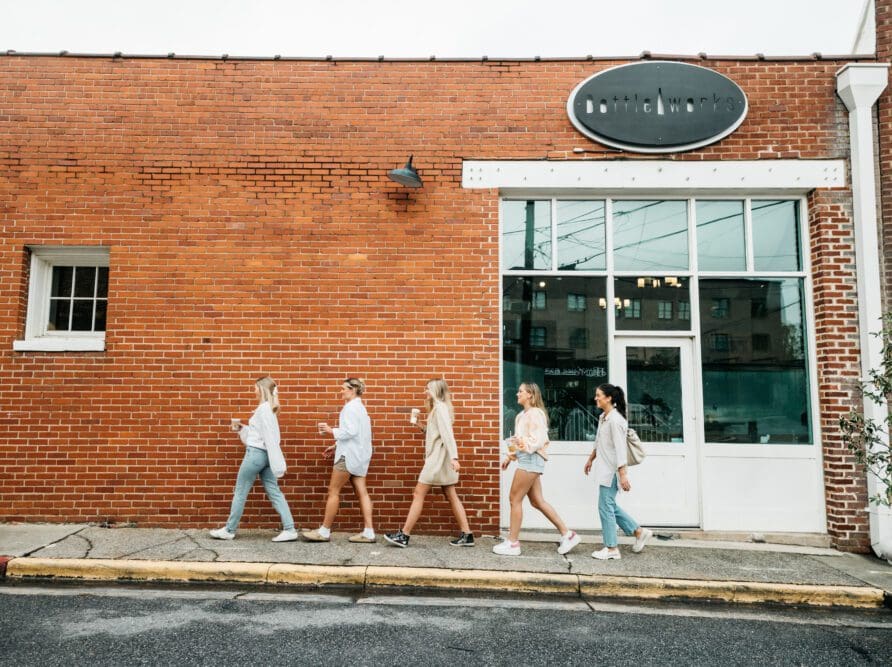Luckily for myself and fellow UGA students, Athens has many housing options to choose from. Whether you’re looking to live on or off-campus, it’s important to understand all of your housing options.
While we’re confident that the top-notch amenities, convenient location, and numerous floor plans at Rambler can accommodate any student’s needs, we understand that it’s important to evaluate all your options thoroughly before signing a lease. Learning about all of the student housing options in Athens will help you make the most informed decision about where to live.
Read Next: Top 6 Best Apartments in Athens Near UGA
To help you start your housing search and properly weigh your options, we’ve made this article to lay out all of the types of housing available for UGA students in Athens.
Types of Housing For Students at UGA
Residence Halls

Photo courtesy of The University of Georgia.
UGA requires all first-year students to live in the dorms, formally known as residence halls.
Residence halls are convenient for walking to class, making friends, and keeping up-to-date with campus events. UGA has 31 residence halls to choose from with a range of traditional, apartment, and suite floor plans.
Some undergraduate students choose to live on-campus following their freshman year. With suite and apartment-style living options, this can be a good option for those who value being close to class without sacrificing having your own space. These dorms come fully furnished, have two to four bedrooms, and have private bathrooms and kitchens.
All dorms have access to the UGA bus system, wifi, laundry, and mail. Most dorms offer study rooms, lounges, and private or communal kitchens.
Dorm rates range from $3,100 to $4,200 per semester, depending on location and room type. UGA allows some students to have full one-year leases if they are taking summer courses, but most are only nine months to line up with the academic year. So, if you are planning on living in a dorm you should expect to pay $6,200 to $8,400 for the year, or $690 to $934 per month.
UGA closes most of the dorms for holiday breaks, so it is important to check with your dorm before signing a contract if you need housing during these times.
Greek Houses
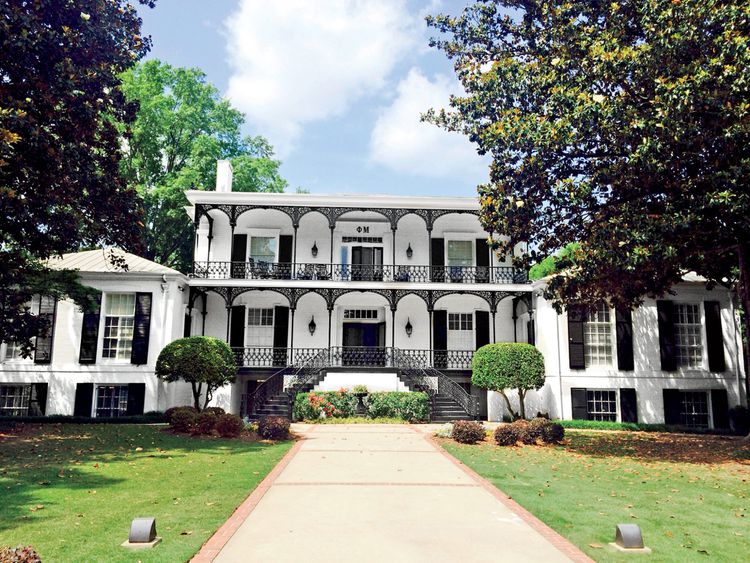
Photo courtesy of Phi Mu at the University of Georgia.
Greek Houses are a popular housing option amongst students involved in these organizations, and there are 19 sororities and over 20 fraternities. UGA Greek life is one of the largest student communities on campus, with 26% of the student population being involved with Greek life.
Sorority and fraternity houses are located around UGA’s campus, most on Milledge Avenue and Greek Circle. These houses are close to campus and are on the UGA bus routes, making going to class an easy walk or ride. The large homes can house around 50 residents each.
Greek houses are typically for second-year members, and space is limited per house. Each house has their own way of deciding which members are able to live there, but most are heavily based on GPA. Some houses require their executive board to live in the house as well, but this is a decision made by the chapter. Many members who are heavily involved with their organization choose to live in the house to be close to friends and activities.
Read Next: Where Do UGA Students Live: Alternatives to Greek Housing
Greek houses are maintained by their organization and chapter at UGA, meaning each individual house sets their own rates for rent, meal plan, etc. Additionally, some houses furnish their rooms for members and others do not.
Members living in the house pay for rent, dues, fees, and their meal plans. For sororities, The University of Georgia Panhellenic Council estimates this number at about $4,359 per semester. Keep in mind that this price includes sorority dues for the semester, so this will not be an additional cost.
While most Greek houses are privately owned by their organization, many choose to follow the same schedule as residence halls. This means that most homes are closed for the holidays and summer. However, some implement their own schedule, which is why you may see fraternities remain open over the summer.
Student Housing Apartments
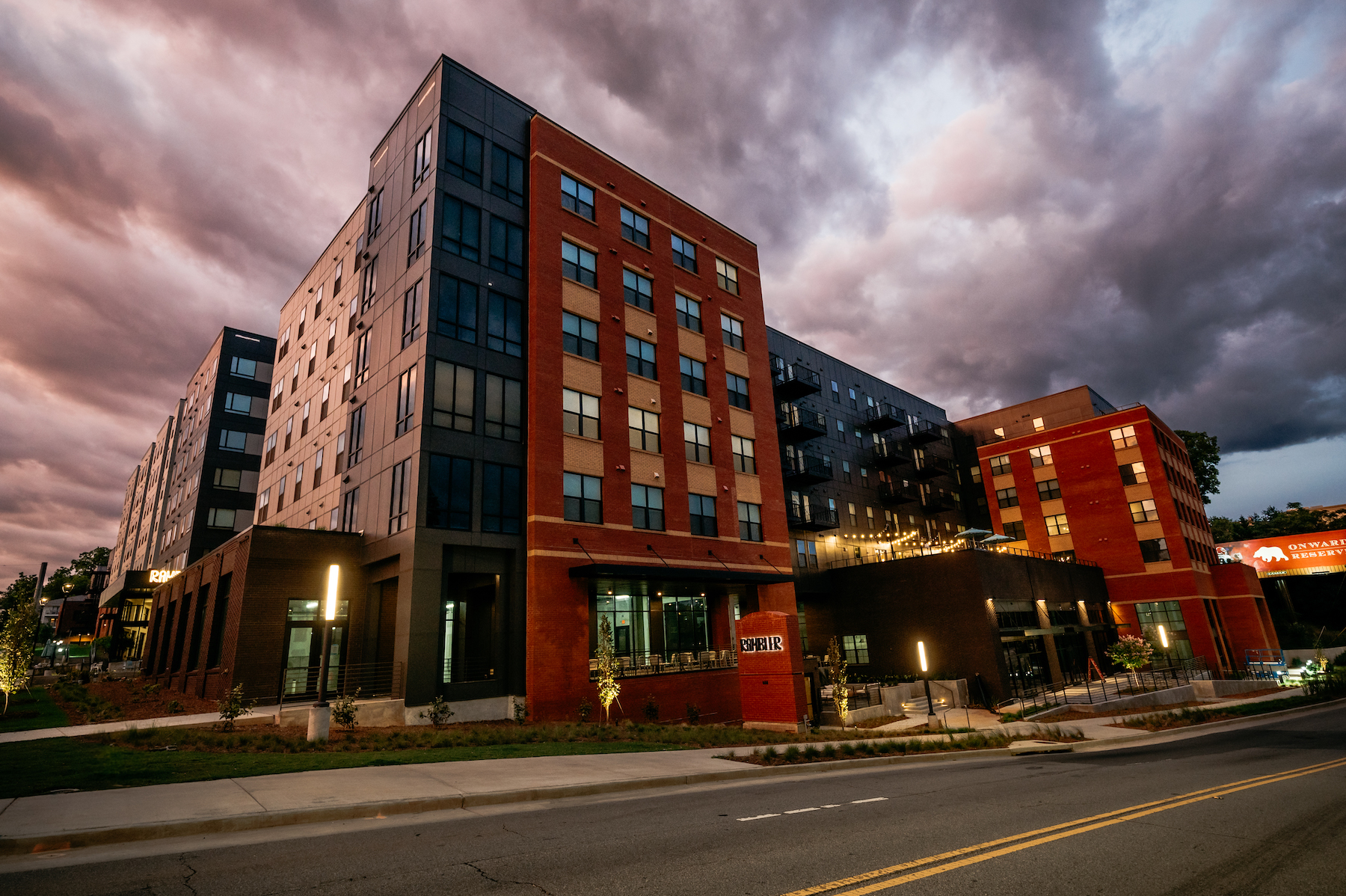
Rambler is conveniently located just blocks from UGA campus.
Student housing apartments are the most popular housing choice for UGA students, and you won’t find yourself underwhelmed with how many options there are in Athens. Most apartments are walkable from campus, and many are close to downtown.
Purpose-built student housing apartments are constructed with the student lifestyle in mind. These apartments are tailor-made to fit the needs and wants of UGA students, which is why they come at a higher price point than traditional apartments.
In order for these apartments to achieve their high-end status, they offer added amenities such as a gym, golf simulator, tanning, pool deck, game room, etc.
An additional feature that these apartments offer for students is individual leases, meaning you will only be responsible for your individual rent, room, and shared-living spaces with your roommates. Also, these apartments typically offer the option to sublease or relet your room over the summer (or semester) if you will not be in Athens.
Off-campus student apartments close to campus range from around $1,200 to $2,000 per person, per month depending on location, size, quality, and other factors.
Unsure about who you will be living with the following year? Many student apartment leasing offices offer roommate-matching services to help you in this decision.
Read Next: How to Find Roommates at The University of Georgia
Traditional Apartments
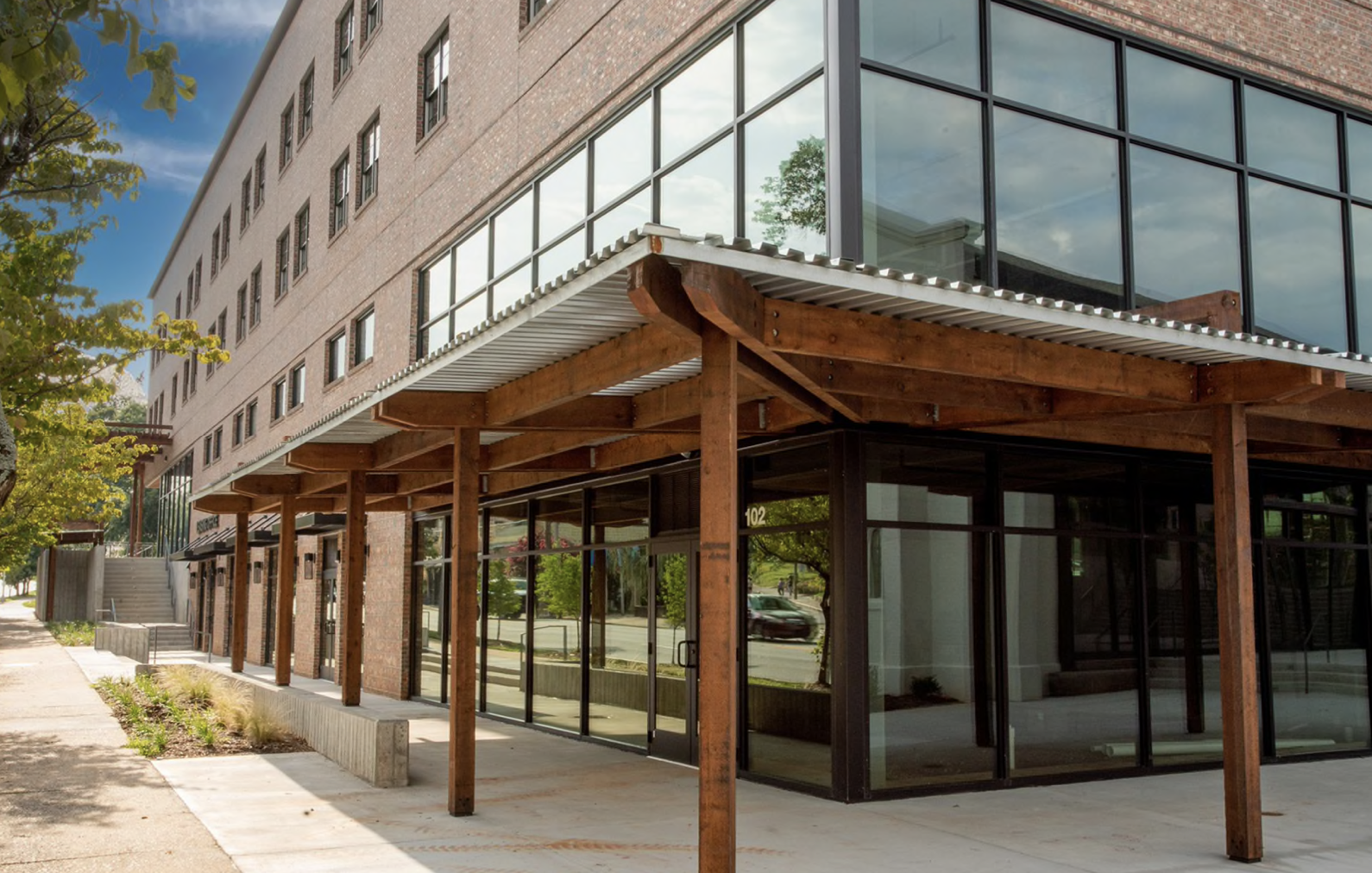
Photo courtesy of 100 Prince
Traditional apartments, located throughout Athens, are a great option for those who do not value the new amenities and contemporary design that student apartments have to offer.
These apartments typically do not have the same elaborate, luxury amenities as student housing options, and will usually offer a significantly smaller amenity package. Additionally, traditional apartments are oftentimes less crowded, quieter, and at a lower price point than purpose-built student housing apartments.
Traditional apartments offer traditional year-long leases. With a traditional lease, all roommates are equally responsible for rent, utilities, and any damages to the property. Additionally, as opposed to individual or “by the bed” leases, roommates will collect the money amongst themselves and then pay the landlord in one lump sum.
Read Next: Benefits of Student Apartments vs. Traditional Apartments in Athens
Traditional apartments are located throughout Athens, and their monthly rates range from around $675 to $2,200 per month depending on a number of factors such as amenities, location and floor plan.
Traditional Houses
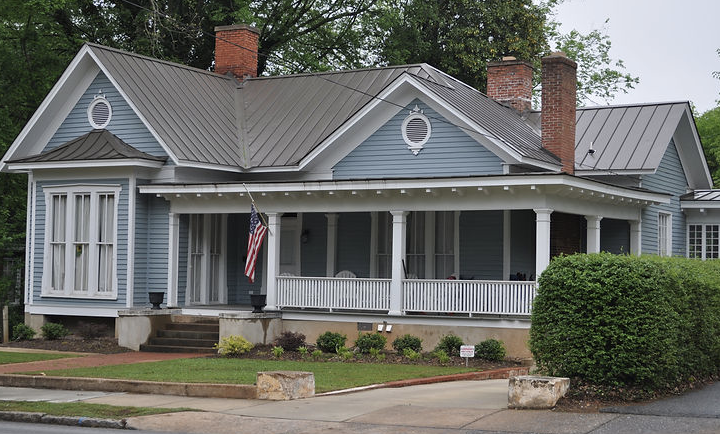
Photo courtesy of Peterson Properties
Traditional houses are the fifth and final housing option discussed in this article. Houses are popular for upperclassmen who want to live with their friends in a private, relaxed environment.
These houses are located in the neighborhoods surrounding UGA’s campus. Traditional houses typically have one or two year long leases, and roommates will split and collect rent together in order to pay the landlord.
These houses require more upkeep than an apartment and lack the high-end amenities that many new developments in Athens offer. It is also important to consider the additional cost of furnishing the house, since most of these houses come unfurnished.
Similar to a lease at a traditional off-campus apartment, there is shared responsibility for all payments and damages.There are several real estate firms that manage homes available to students, but there are also private owners and investors that supply these homes to students. Monthly rates typically fall between $650 to $950 per person, depending on when it was constructed, location, size, etc.
Comparison of Housing Types
To summarize the typical offerings of each housing type, we have put together this table to help you compare the options discussed in this article:
| Residence Halls | Student Housing Apartments | Traditional Apartments | Greek Houses | Traditional Houses | |
| Meal Plan | Yes | Varies | No | Yes | No |
| Roommate Matching | Yes | Yes | No | No | No |
| Affordability | $$$ | $$ – $$$ | $ – $$$ | $$ | $ – $$$ |
| On-Campus or Off-Campus | On | Off | Off | Varies | Off |
| Furnished | Yes | Varies | No | Varies | No |
Overall, students at the University of Georgia have an abundance of options for housing. Whatever your preference may be, we hope that you find the place best suited for your living style in Athens.
To help you simplify your UGA housing search, we’ve put together a complete guide to off-campus housing near UGA:
We hope that this article helped educate you on all of the housing options near UGA and compare the types of housing that are offered.
If you would like to learn more about Rambler or Athens student living in general, please visit our amenities and floor plan pages for more information or contact our leasing staff. We are happy to help answer any questions you may have during your housing search.
